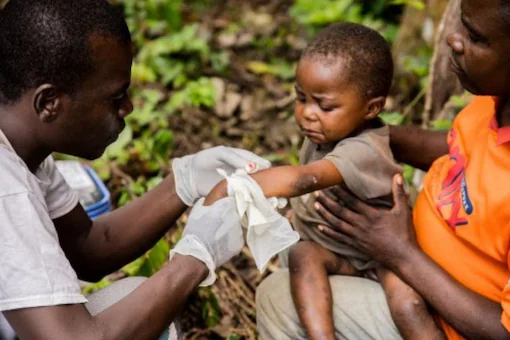According to data published on Monday by the Union Health Ministry, India’s Covid case positivity rate surpassed 1% for the first time in over two months, as the country saw a single-day increase of 3,157 infections and 26 fatalities. According to the data, the increase boosted the country’s entire Covid tally to 4,30,82,345 cases and 5,23,869 deaths. The number of active cases increased by 408 in a 24-hour period to 19,500, according to figures updated at 8 a.m. After a little more than two months, the daily positivity increased to 1.07 percent, according to the ministry. On February 27, it was at 1.11 percent. According to the health ministry, the weekly positivity rate was 0.70 percent. The percentage of all coronavirus tests that yield a positive result is referred to as the positivity rate. A greater positive rate indicates that the virus is spreading more quickly. With the additional 26 fatalities reported, the death toll has now risen to 5,23,869, with 21 of them from Kerala alone. Active cases account for only 0.05 percent of all infections. The COVID-19 recovery rate in the country was 98.74 percent, according to the health ministry. The number of persons who have recovered from the disease has risen to 4,25,38,976, with a 1.22 percent case fatality rate. The total number of doses given out in the country as part of the nationwide COVID-19 vaccination effort has surpassed 189.23 crore. On August 7, 2020, India’s COVID-19 tally surpassed 20 lakh, followed by 30 lakh on August 23, 40 lakh on September 5, and 50 lakh on September 16. On December 19, it exceeded the one-crore mark. On May 4, India passed the two-crore mark, and on June 23, it passed the three-crore mark. Kerala has 21 new fatalities, Odisha has two, while Karnataka, Uttar Pradesh, and West Bengal each have one. So far, the country has reported 5,23,869 deaths, including 1,47,843 in Maharashtra, 69,068 in Kerala, 40,102 in Karnataka, 38,025 in Tamil Nadu, 26,175 in Delhi, 23,508 in Uttar Pradesh, and 21,202 in West Bengal. More than 70% of deaths, according to the health ministry, were caused by comorbidities. “Our figures are being reconciled with (those of) the Indian Council of Medical Research,” the ministry wrote on its website, adding that the state-by-state distribution of figures is still being verified and reconciled. Source: PTI






